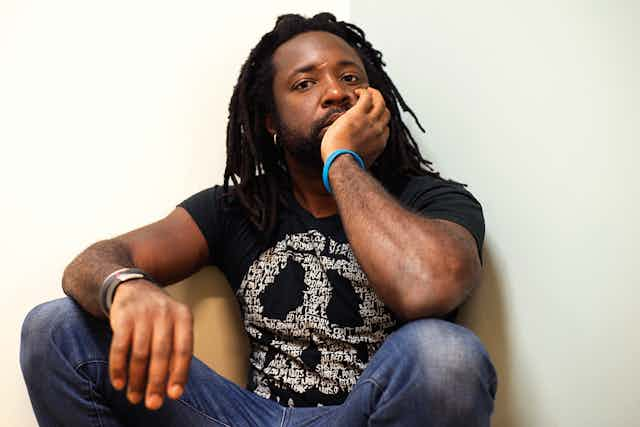The winner of the 2015 Man Booker Prize for Fiction was announced last night at a glitzy ceremony held at London’s Guildhall. Marlon James’s book, A Brief History of Seven Killings, was awarded the £50,000 prize, beating the bookies’ favourite, Hanya Yanagihara’s A Little Life.
When the Booker Prize Foundation changed the rules of entry in 2014 to allow American authors to be considered for the first time, there were concerns that Americans would dominate the prize’s long- and shortlists. It was suggested that, by broadening the prize’s terms and conditions, the organisers would actually reduce the cultural diversity of the winners.
Indeed, this year’s longlist seemed to prove such predictions right. Five of the 13 longlisted books were by American writers, and it has been reported that four of the six shortlisted authors currently reside in the US – although an author’s eligibility for the award is defined by their nationality, not by where they live and by this criteria this year’s shortlisted authors were a diverse group.
A new chapter?
Indeed, in his speech at the awards ceremony, Michael Wood, the Chair of the Man Booker Prize judging panel, once again extolled the diversity of the shortlist.
On the surface, James’ win appears to support this claim. But his status as the first and only Jamaican author to win (or be shortlisted for) the Man Booker Prize also highlights the awards’ historic lack of diversity.
With the announcement of James’s win, people took to Twitter to applaud the fact that the recent changes in eligibility had enabled hitherto overlooked authors to be considered for the acclaimed literary prize. But the Man Booker Prize has always been open to authors from Commonwealth countries writing in English and published in the UK.
Consequently, the fact that James is the first Jamaican author to be shortlisted in the award’s 46-year history – and that his fellow shortlistee, Chigozie Obioma, is only the second Nigerian author ever to be shortlisted – is indicative of a longstanding failure to reward authors from a broad range of backgrounds.
A familiar tale
Of the 49 authors who have won the Man Booker Prize since its inception in 1969, 28 have been British and 75% of those, English (though this proportion roughly aligns with census data). Such inequalities do not only relate to an author’s nationality. It is also worth noting the award’s propensity to reward male rather than female authors. Following James’ win, the prize has been awarded to 30 men, but only 16 women.
As I highlighted in an article earlier this year, such disparities are even evident in the number and type of publishers who are invited to nominate books for the award.
While we shouldn’t underestimate the significance and importance of James’ Man Booker Prize win, it would be wrong to suggest that it is illustrative of the award’s long-term track record on social and cultural diversity. It’s true that great strides are being made in the equal promotion and celebration of literature from authors from different cultural backgrounds around the globe – and we should take heart from the diversity of this year’s shortlist.
But the fact that so much of the coverage of last night’s announcement focused on James’ being the first Jamaican author to win in the prize’s 46-year history suggests we need to keep pushing for this inclusivity to be a hallmark of the Man Booker Prize if it is to truly be seen as the world’s most prestigious fiction award.

